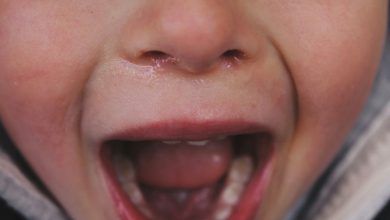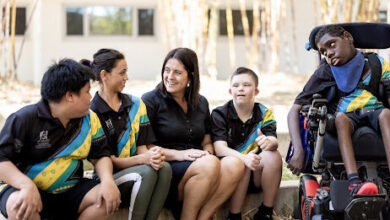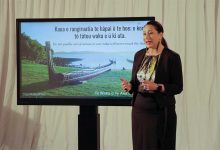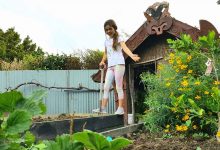
How relevant is a six-monthly report by the time it gets home?
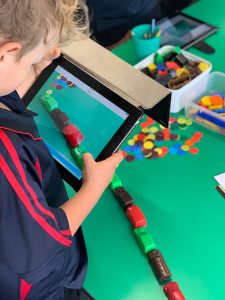
Adapting assessment practices to gather evidence of 21st Century outcomes/skills is becoming urgent!
Providing timely personalised feedback to students which lets them monitor their own progress and develop self-regulatory skills is becoming a high priority!
Connecting with parents/whānau to develop genuine collaboration to help build insights about student’s learning progress and challenges is vital!
Although this is easier said than done, and can feel overwhelmingly challenging, it is also achievable. One strategy is by leveraging digital technologies. “New possibilities for diversifying collection and judgement of evidence Smart technologies allow online, anytime, anywhere, and on-demand assessment” (Murgatroyd, 2018). The benefits by far outweigh the current six-monthly reporting model. Digital tools add to curriculum/assessment alignment challenges by enabling “just in time” assessment close to the learning and an opportunity to engage, deepen and extend the learning conversations.
What’s driving the need for this change? The CORE Education 2019 Ten Trendsidentify these societal influences when it comes to real time reporting:
- Demand for more timely, personalised feedback
- Greater emphasis on formative assessment and reporting
- Technological developments
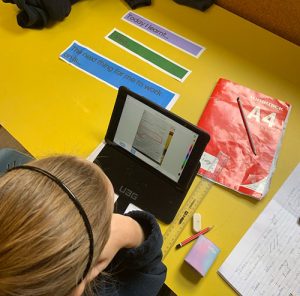
Building assessment capabilities
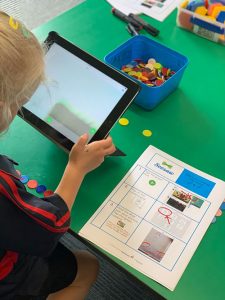
The call for reporting on progress in real time will allow the learning gains of every student to be acknowledged. Teachers need to build their own and their students’ assessment capabilities so that they can develop and bring to life formative assessment using digital technologies in their learning environment. Actively involving students is an important part and provides opportunity to develop the language of learning. “The evidence is unequivocal that self and peer assessment practices are strongly associated with student achievement.”(Hipkins & Cameron, 2018). We need to allocate time in our learning programmes for peer to peer assessment conversations and how we respond appropriately to feedback from teachers and peers.
Have you considered the following?
- Do learners know what is expected? Are they clear on the purpose?
- Do learners know what quality looks like? Do they know where they are at with their own learning progress?
- Are learners comfortable with giving and receiving feedback? Peer and self assessment/reflection?
- Can learners articulate their learning clearly and concisely?
- Can they manage their own learning by responding to feedback that was designed to move them forward?
Some practical strategies to get started with learners:
If you are starting out with developing the language of learning so students can articulate their learning you might want to support them with sentence structures.
- I was pleased when…
- I found out…
- I now understand…
- I worked hard to…
- I practised…
- It was hard but I managed to…
- It was interesting when…
- I used to…but now I…
- The next thing for me to work on is…
- I wondered if…
- Sometimes I need to remember…
- I tried…
- Today I learnt…
- I am proud of…
- My question is…
Support students to develop digital literacies to move towards becoming digitally fluent (they can choose the digital tool fit for purpose). They will learn different ways to share their learning and the digital tools that enhance this. For example if you are using Seesaw you can develop how to use the different in-built tools (camera, video, voice recording, drawing, labels, links).
Deepening the learning conversations
Relationships between home and school are important! How can we get parents/whānau to engage in more meaningful feedback and conversations beyond responding with ‘that’s cool’ or a ‘like’. We want online conversations to amplify our face to face conversations. Students are our best advocates to move the online conversations to foster collaboration. Once the students have developed confidence with the language of learning they can ask for specific feedback. The following example shows how Clifton Terrace Model School in Wellington launched a school wide approach to deepen learning conversations through students posting on Seesaw.
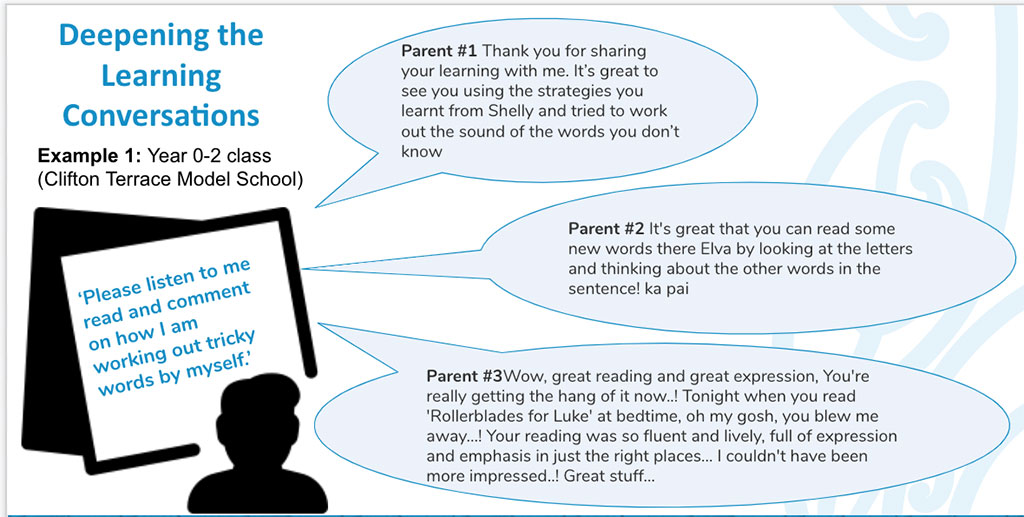
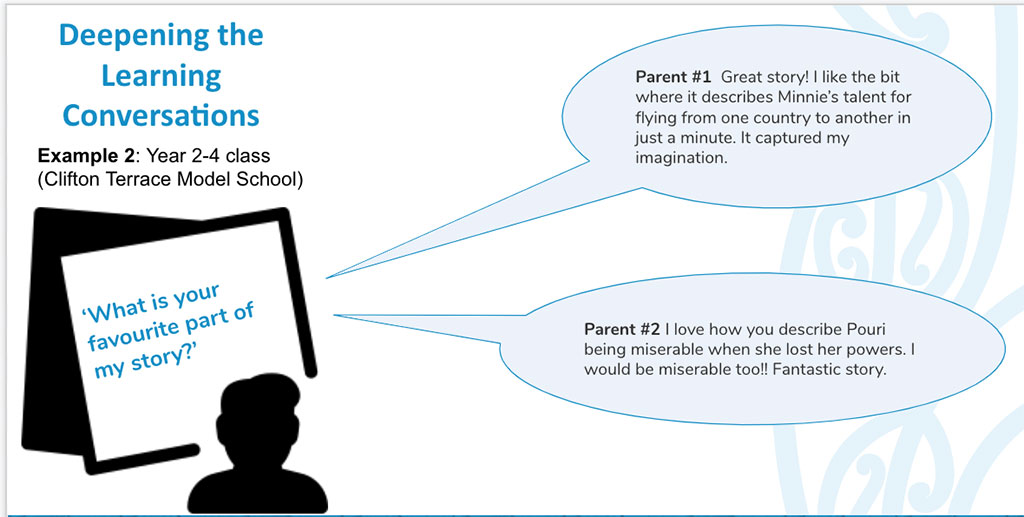
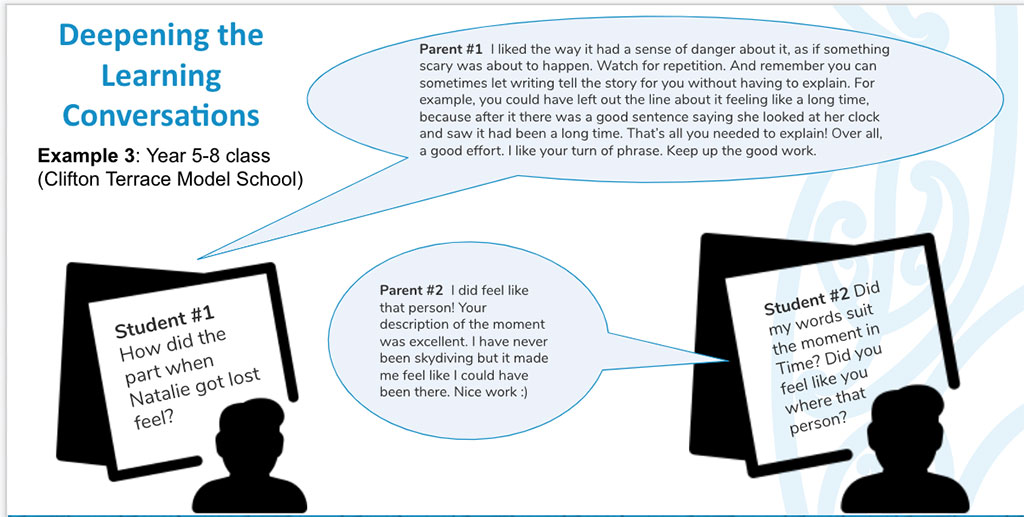
The next steps
Allow time for students to read the responses and scaffold how to respond. Initially this could be a “thank you”, then move into using the Key Competencies. How do we respond to positive feedback? How do we respond to constructive feedback?
The principles of effective reporting and information sharing from the Ministry of Education clearly indicate the requirement to move to using digital technologies that enable parents and whānau to see their child’s progress on-line in real time.
To engage further in this conversation go to: https://edspace.org.nz/discussion/view/102871/ten-trend-real-time-reporting. You will find out about what other schools are doing around the shift to real time reporting. Join the conversation and share your thinking or what strategies you are using to approach real time reporting effectively. Will making a shift to real time reporting be a more effective use of teacher time and be more beneficial for students than a six monthly report?
Images taken by Katrina Laurie at St Anthony’s School (Seatoun), all rights reserved. This article was written by Katrina Laurie and is shared with permission from Core Education.
References
CORE Education. (2019). Real-time reporting. Retrieved from http://www.core-ed.org/research-and-innovation/ten-trends/2019/real-time-reporting/
Hipkins, R., & Cameron, M. (2018). Trends in assessment: An overview of themes in the literature [Ebook]. Wellington: NZCER. Retrieved from https://www.nzcer.org.nz/system/files/Trends%20in%20assessment%20report.pdf
Ministry of Education. (2019). Principles of effective reporting / Reporting to parents & whānau. Retrieved from http://assessment.tki.org.nz/Reporting-to-parents-whanau/Principles-of-effective-reporting
Murgatroyd, S. (2018). New approaches to the assessment of learning: New possibilities for business education. In A. Khare
& D. Hurst (Eds.), On the line—business education in the digital age (pp. 141–155). Switzerland: Springer



